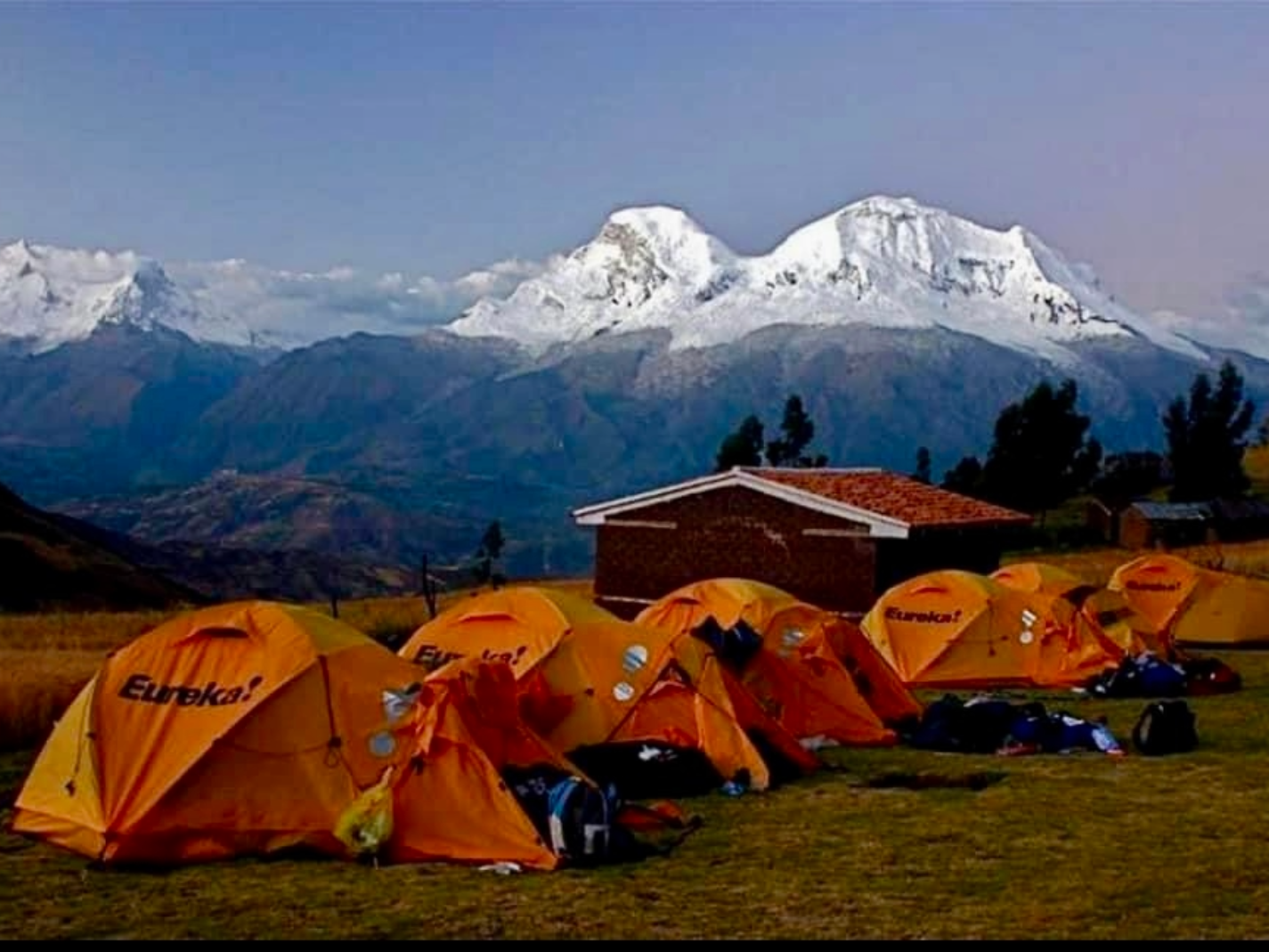
“But ye shall receive power after the Holy Ghost is come upon you; and ye shall be witnesses unto Me both in Jerusalem, and in all Judea and in Samaria, and unto the uttermost part of the earth.” – Acts 1:8
As a college professor concerned with the broadening of my students’ compassionate understanding of oppressed people in other parts of the world, I have spent the last several weeks helping to plan an encampment.
My students and I will spend our nights in tents that I personally purchased specifically for this event. They were expensive tents—Eureka K2-XT Extreme tents—the kind that people who summit Everest take with them.
But unlike the puerile nonsense you see playing out on your television screens at places like Columbia University and the University of California Los Angeles (UCLA), our student encampment won’t be violent. And it’s not a protest. We’re not protesting anything—although I suppose one could make the case that we’re protesting Satan’s grip on a largely ignored and impoverished people group living in remote villages in the Andes Mountains.
Over the past twenty-four years, I have trekked along different circuits through the Peruvian Andes on scripture promotion treks with a group of Wycliffe Bible Translators a total of twenty times. I have come to know and love this group of dedicated, full-time missionaries and evangelists who live in Huaraz, a city of 120,000 nestled in the Callejon de Huaylas, the huge valley that splits the Peruvian Andes into two mountain ranges—the Cordillera Blanca and Negra.
This year’s trip will be my twenty-first and fourth such adventure with students since I came to teach at Palm Beach Atlantic University in 2018.
Two years ago, during one such trip, shortly after setting up our tents in a field outside a school in the village of Conopa Alta, curious locals began to filter in. A soccer game broke out: It was PBA vs. Peru—at 11,350 feet! (Miraculously, we won!). A group of musicians showed up playing traditional Quechua tunes. We all danced until it was time for dinner, our chef having whipped up an amazing three-course meal in a tent no larger than 150 square feet.
That evening the entire village came out to our campsite to watch “The Jesus Film” in the drafty school building. After the movie, one of the evangelists spoke to the crowd. Another played music on a harp and sang a folk tune in the Quechua’s native language.
Finally, it was our turn.
I spoke first in Spanish, explaining who we were and why we had come to Peru. Then, one by one, the rest of the group introduced themselves. Two students spoke Spanish. Adelid Yanac, who, along with his wife Rachel, led these treks every year, translated for the rest into Quechua. Then Conopa Alta’s mayor spoke, thanked us for coming, and finally called the names of the adult members from each family, who then picked their way through the crowd to the front of the room and were presented a Bible by one of the students.
“¡Qué Dios le bendiga!” (May God bless you!) each of us said as we placed a copy of the Bible into each person’s hands. “¡Muchas gracias!” was the reply, accompanied by joyful expressions on the faces of all. The meeting ended shortly thereafter. Exhausted, we turned in for the night.
After breakfast the next morning, we departed on foot for what was to be a seven-hour hike. First, it was down into the valley below us on a steep gravel-strewn trail, then up through a mountain pass approaching 14,000 feet, where we paused—some four hours later—for lunch and to take in the spectacular view. We continued down the other side to the second village on our circuit, Yegua Corral, where we repeated the program that evening. The next day, after another grueling seven-hour walk, we arrived in the village of Carhuacasha, where we repeated the program for a third time and, subsequently, the next evening in the village of Ocshapampa.
We gave out approximately 450 Bibles in those four villages to a people group that God loves as much as He loves you and me. The Quechua in these villages had never seen a copy of the Word of God in their own language.
In 2023, another group of nine students and I repeated this performance along a different route in the Huaylas Valley. Similar to the trip a year earlier, we visited five villages. On the way back to Huaraz, our bus stopped a half-dozen times at schools in small villages that dotted the highway. We spoke to the teachers and students and gave them Bibles and Bible storybooks. On this trip, we were able to distribute almost 700 Bibles and 100 Bible story books.
I don’t know what the hell professors in places like Columbia University and UCLA are indoctrinating their students with—and I do not use the term “hell” loosely—but it sure seems like they have ginned up a spirit of victimhood, entitlement, and a hatred of America and the West.
I want to be countercultural in this regard. I want my students to be heavenly-minded. I want to imbue them with a spirit of humility, gratitude, and servant leadership. I want them to want to make a difference in the lives of the people whom God brings into their paths—whether here, in our Jerusalem, so to speak, or in the “uttermost part of the earth.”
Photo by Author
I found your article interesting as I was in Peru around 1980 and worked on the education compound in Hauraz for the promotion of quechua teachers to promote the Word in south america. Good to see the results some 40+ years later
John Bontius
Explore the innovative approach of a Florida professor planning an unconventional ‘encampment.’ This unique initiative promises to offer valuable insights and spark meaningful dialogue within the community.
Fascinating initiative! Encampments can foster unique learning environments, offering practical insights beyond traditional classroom settings.